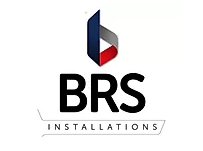The Risks of Self-Preparing an R&D Claim
- November 2022
- 5 minutes
It can be a challenging process, even though many businesses are able to and do complete their own R&D tax credit requests. Unfortunately, it may be quite simple to make mistakes in your claim unless you have a thorough understanding of the requirements. If this happens, you may not be able to receive as much as you are entitled to or even receive anything at all.
Inaccurate information can cause an inquiry, which would lengthen the procedure by several months and increase the time it takes for your company to get the money it needs for new projects. Many businesses also have a tendency to overlook some of their allowable expenses, such as a variety of consumables, indirect operations, personnel costs, intangible expenditures, grants or significant company-sponsored projects, and much more.
 Which scheme to use – SME or RDEC?
Which scheme to use – SME or RDEC?
Which projects can be claimed for under which plan depends on a number of different criteria. This includes knowing if your company qualifies as a small or medium-sized enterprise (SME) and how elements like venture capitalists, universities, group ownership, and even partner organisations might influence this.
Knowing which programme you can use depends on whether you have determined if you are a SME or not. Obviously, SME for self-funded initiatives if you are a SME. How about those initiatives supported by grants?
Well, that depends on whether or not these are Notified State Aids (NSA) (NNSA). NNSA-funded projects fall under both the SME and RDEC schemes at that point, however you can only claim under RDEC for NSA-funded projects.
Another issue is when a Large Company pays a SME to perform some Eligible R&D activities. Given that you have already been paid, that cannot be claimed, can it? You may submit a claim under the RDEC programme. You received payment, perhaps even a profit, and you still have a claim? Yes! Who owns the intellectual property, though? Yet another challenging issue.
 You may get less than you are due
You may get less than you are due
The government supports innovation because it is one of the factors that helps the economy. The HMRC has established the SME and RDEC tax relief programmes, which are open to both small and large businesses. There is always a catch with these plans, despite the fact that they are quite helpful in fostering greater corporate innovation.
By checking the wrong box, adding the improper expenses, or failing to provide the specific details that the HMRC is looking for, you run the risk of making mistakes.
If you decide to self-prepare your R&D claim, it is essential that you invest the time in gathering the pertinent data and advice you require. As erroneous information could harm or delay your claim, you must ensure that all of the information you are supplying is error-free and complete. When submitting a self-prepared claim, one of the most common mistakes people make is underestimating their R&D costs and leaving out allowable charges.
The key advantage of HMRC claims is that there are ways to make sure your expenses meet the requirements. Your claims may rise by thousands of pounds as a result. Past R&D projects may also be applied for, up to two years after the end of your accounting period. The negative side is that the guidelines can be difficult to understand and, if not interpreted correctly, you could lose out on a significant amount of money.
Utilizing a consultancy to assist you with your claim has many advantages, including updated research, years of expertise, and knowledge of what the HMRC is looking for.
The HMRC’s primary objective is to ensure that everyone pays the appropriate amount of tax, thus they also strive to deliver the maximum amount in each claim. Unfortunately, rather than too tiny claims, this more often relates to claims that are too enormous. If you haven’t claimed enough, the HMRC won’t offer you any advice.
 Your time is money
Your time is money
Applying for R&D tax credits can take some time. If this time is wasted or might be better used elsewhere in your company, a problem arises. A good way to prioritise and streamline your investment is to have a specialist by your side who only deals with R&D tax credits on a daily basis. For a successful conclusion, a competent team makes sure the appropriate individuals are in the appropriate positions. You should collaborate with your R&D tax advisor.
Senior technical workers often have trouble managing their time. Although their input is crucial, it diverts them from their regular employment. They frequently don’t fully get what is required of them or the ramifications of what they are. They can be left either undervaluing the R&D, or just feeling very exposed. Never more so than if the claim gets challenged by HMRC.
Neither can R&D tax credit claims be managed exclusively by the finance team (with no technical input). Finance teams are often the ones who identify the opportunity for R&D tax credits and end up owning the process, but they need engagement from the technical team. Sometimes, this can create frustration or conflict.
 R&D’s technical justification
R&D’s technical justification
Although creating your own claim could save you money, the time and effort required might not be worthwhile. The HMRC must ensure that they are providing tax advantages to the appropriate people for the correct reasons, thus the procedure will be laborious. The application process is exceedingly labor-intensive, lengthy, and thorough. Additionally, not just any employee can complete the majority of the areas on an R&D claim.
A competent professional, which is a permanent employee with years of expertise in the relevant field or fields linked to the R&D project, is required to supply the degree of technical information required by HMRC to support your projects as R&D. That person has an in depth knowledge of the project, the uncertainties, problems and solutions, and why these could not be readily solved by a competent person.
This implies that you will have to complete a drawn-out, time-consuming tax claim that can only be completed by a knowledgeable, experienced person who likely has a lot of other things to concentrate on. Smaller businesses may find this particularly difficult because they are less likely to have the extra time and resources to devote to completing a tax claim.
 You can later encounter difficulties with your R&D claim.
You can later encounter difficulties with your R&D claim.
It’s critical to double and triple check all of your work because creating an R&D claim is probably not your primary area of expertise. People who are inexperienced run a greater risk of including mistakes and false information. Every error made could cause the claim’s processing to be delayed.
HMRC has the power to conduct an investigation up to 12 months following your submission, at which point new information or more thorough justifications must be provided. The inquiry process has a deadline for submitting the information, followed by a period of time for HMRC to review it. This cycle could continue until HMRC decides whether to accept your claim or not. It is advised that you cooperate fully with the investigation because failing to persuade them that your claim is true could result in sanctions.
One of the main advantages of using a consultancy is having someone qualified contest the claim in the same way that HMRC would. In this manner, all of the issues will be resolved prior to the programme being distributed. A candid discussion between your business and a specialist will guarantee that you have made the most plausible but true claims possible. The application, eligible expenses, technical narrative, and tax advice that you cannot get from the HMRC will all be handled by our staff to assist your accountant with the claims procedure.
“We must unleash the potential of the private sector if we are serious about moving forward.”
















